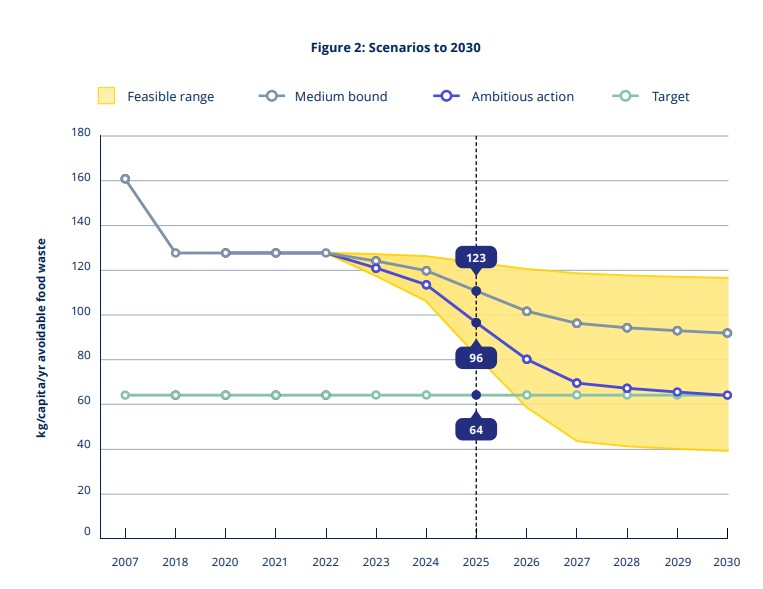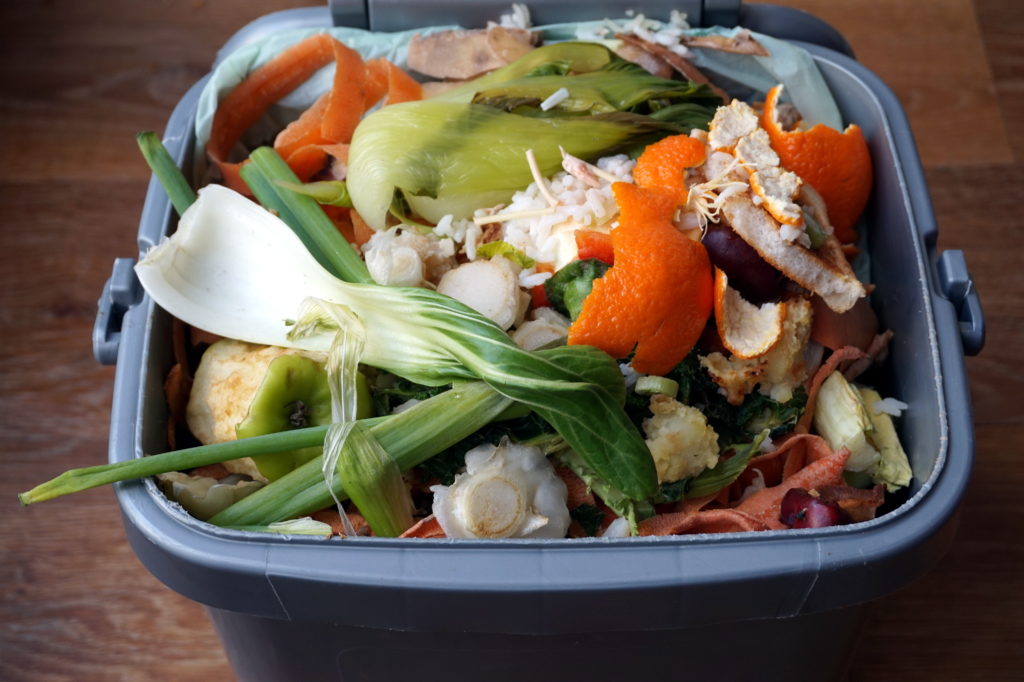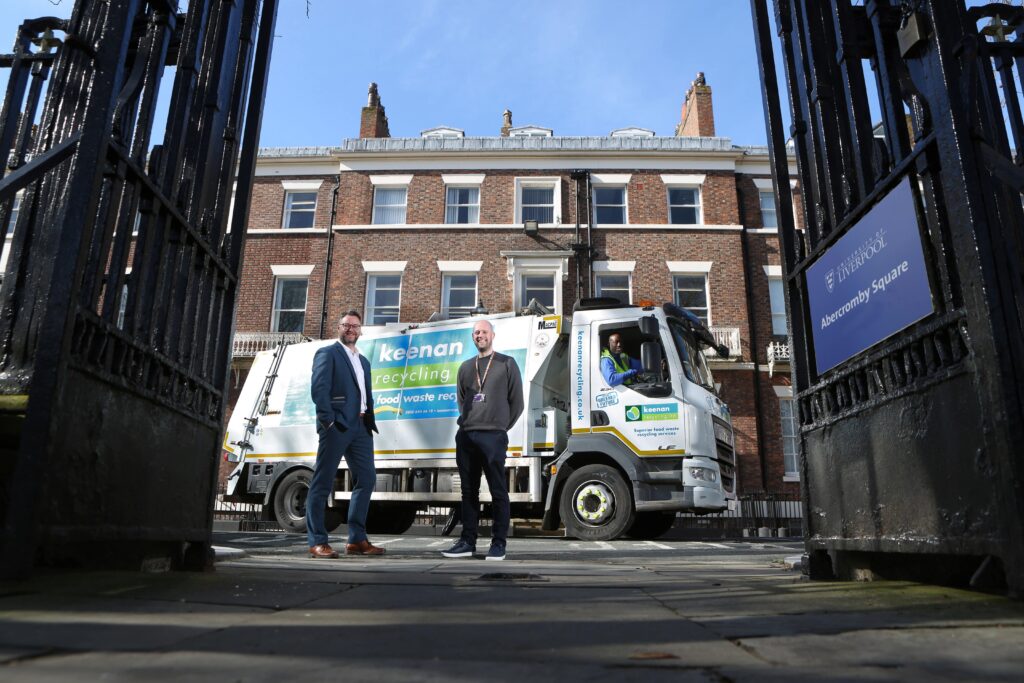In March 2021, the Welsh Government published its ‘Beyond Recycling’ strategy, which committed to a target of reducing avoidable food waste by 50% by 2025, relative to a 2007 baseline, and a reduction of 60% by 2030.
Last week (25 May), WRAP Cymru set out a “suite of interventions” which could deliver reductions in food waste to enable the Welsh government to hits its 2030 target.
In its ‘roadmap‘ WRAP looked to provide Welsh Government with a selection of delivery options to reach the 2030 target, for example ‘higher ambition’ interventions vs ‘lower ambition’ interventions.
While the figures were examining the feasibility of the 2030 target, the below table suggested that the 2025 target to halve food waste from 160kg/ capita in 2007 to 80kg was beyond the “feasible” range. It was also below the modelled rate if “ambitious” action was taken.

Data
A spokesperson for the Welsh Government said however that the modelling focuses on 2030 and the actions needed to achieve that target.
“It uses the last available complete set of data which was 2018, though that partly relied on an analysis carried out as late as 2015.”
A new compositional analysis for household waste for 2022 has been conducted, the spokesperson said, which will give a better indication for the 2025 target.
This was echoed by WRAP, who said it assumes in the report that food waste per person has been constant since 2018, “when in reality there may have been changes”.
The spokesperson added: “Once more up-to-date data on food waste is available, we would expect to have a better idea of the savings already achieved and the relation to the 2025 target through those actions, and what can be done in the short term to achieve it.”
Measures
When looking at the sectors in which the most waste is likely to persist, WRAP said “it is clear that household is likely to remain the key challenging sector”.
The report explained that Wales “already has nearly universal food waste collection in its world leading recycling service”, but participation and recycling rates “still have scope for further improvement”.
This could be improved by campaigns and outreach to improve recycling, including addressing reported barriers around convenience, hygiene and so on, the report noted.
“More ambitious options include through further restrictions on residual waste capacity or by introducing weight or volume-based charges for residual waste.”
WRAP also said that government and local authorities can help propel campaigns further than NGOs and private organisations, saying that a collaborative, well-timed campaign with consistent messaging would make the most impact.












Subscribe for free